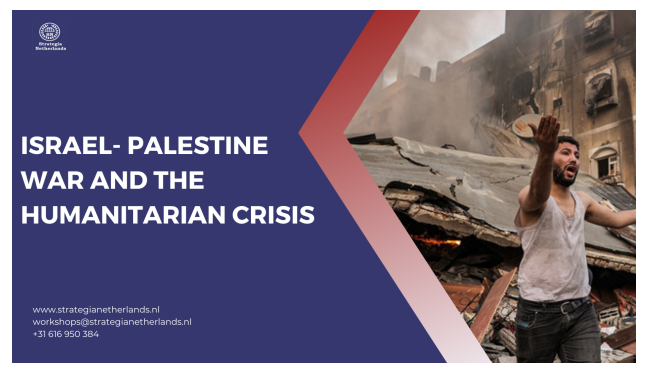- October 13, 2023
- Posted by: strategia
- Category: Uncategorized

There’s a war going on.
For the past few days, you’ve read, heard, or watched the news on what’s happening in
Israel and Palestine.
There has been bad blood between these two territories for over a century, but this
recent battle began on Oct 7, 2023 when militants from Gaza attacked and caused
havoc in Israel.
Then, in a quick escalation of events, Israel became angry and decided to fight back.
And as you watch the horror, not knowing what will happen next, you’re probably
feeling a mishmash of emotions. A mix of sadness, anger, and helplessness.
Now, when you watch the scenes of human suffering on the news, it’s easy to feel
overwhelmed. And to be honest, that feeling is real. The sadness can be paralyzing,
the anger a fire within, and the urge to help a powerful force. Which goes to show
you’re an empathetic human being.
However, in the quest to alleviate suffering, there’s one thing you should know: before
you can help someone, you should first understand the problems they’re facing.
Let’s look at how the war going on between the Israelites and Hamas has caused a
humanitarian crisis.
What’s the Humanitarian Crisis?
This is a generalized emergency situation which affects a whole community or a group
of people in a region involving high levels of human suffering and death.
There are many causes of humanitarian crises in the world. One of the major factors is
war between two or more groups.
An example is the ongoing war between Israel and Palestine.
The origin of their conflict is over a century ago. A battle for power, control, and
resources… just like every war is. And what are the consequences? Families torn apart,
cities reduced to rubbles, and lives— if spared— forever changed.
When two groups fight, it always has negative effects on the people who are caught
between the fires. Violence is never without casualties.
The Problem
The problems arising from the war have led to a humanitarian crisis in Israel and
Palestine.
These problems include:
i) Displacement of civilians
Imagine being forced to suddenly leave your home and everything you’ve ever known.
It’s devastating. And as sure as you’re reading this, that’s what’s happening to
thousands of people in Israel and Gaza. This has turned them into refugees in search of
safety. And it’s heartbreaking to see individuals such as Jamal running for their lives.
ii) Food and water scarcity
When disaster strikes, basic needs such as water and food become uncertain. Children,
women and men face thirst and hunger. And they lament silently since their main
concern is to escape death. In Gaza, it has even been made worse because, reportedly,
new supplies are not allowed in. Which means there’s no food. No water. No fuel. And
even electricity has been cut off.
iii) Medical emergencies
In war, hospitals and healthcare facilities are not exempt. Both the good and the bad
go down. That’s how the healthcare system crumbles, and with the increasing number
of casualties, you can’t do anything but watch the people suffer. Many lives are lost
when there are no medical supplies. According to the World Health Organization
(WHO) spokesperson Taric Jazarevic, “hospitals are beyond their capacity.”
iv) Infrastructure damage
The infrastructure that keeps our societies running smoothly takes a severe hit during
war. That’s as a result of using explosive weapons. Roads, bridges, and power grids
are destroyed. And because you cannot help someone whom you cannot reach, it’s a
challenge delivering humanitarian aid and services to them.
v) Psychological trauma
There’s a saying that goes, “If there is war within ourselves, there will be war outside
ourselves.”
But guess what?
As a result of the war outside ourselves, there will be war within ourselves.
It’s a case of cause and effect. The consequences of war extend far beyond the physical
realm.
Witnessing the horrors of war, enduring hunger, and being displaced is traumatic and
stressful. It leaves deep emotional scars. And worse, children who are witnessing and
experiencing this war will most likely suffer from severe psychological trauma in future.
Looking Forward
When you look at the humanitarian crisis in Israel and Palestine right now, it’s tough
not to feel a heavy heart. It’s overwhelming. And it’s natural to feel helpless since the
weight of these crises can make anyone feel small.
However, don’t forget that every change, no matter how significant, begins with one
small step. You may not be able to solve the entire crisis, but your actions can make a
difference in someone’s life.
People like you, with compassion and determination, have the power to change lives
and rebuild communities.
It all starts with a simple question: “What can I do to help?” And there are various
options.
● You can donate to a relief organization.
● You can volunteer your time.
● You can simply spread awareness.
So it’s important to shift your focus from the problems to the solutions. Humanitarian
crises are complex, but they are not insurmountable.
Together, by acknowledging the challenges, understanding the causes, and taking
action, we can create a world where humanitarian crises are less frequent, less severe,
and, hopefully, a thing of the past.
#We stand for peace.
